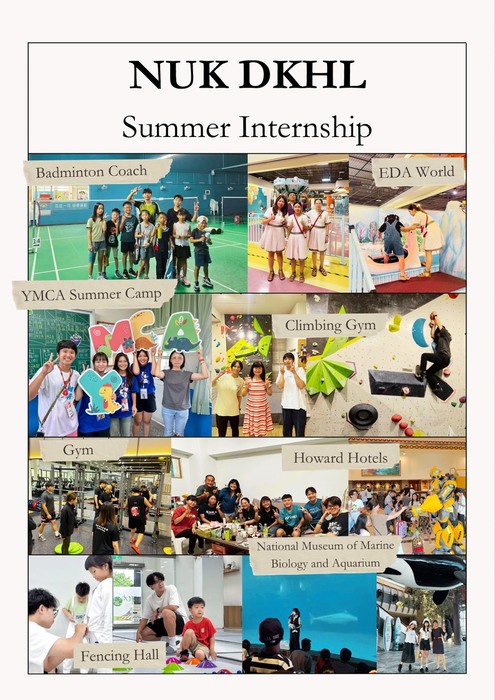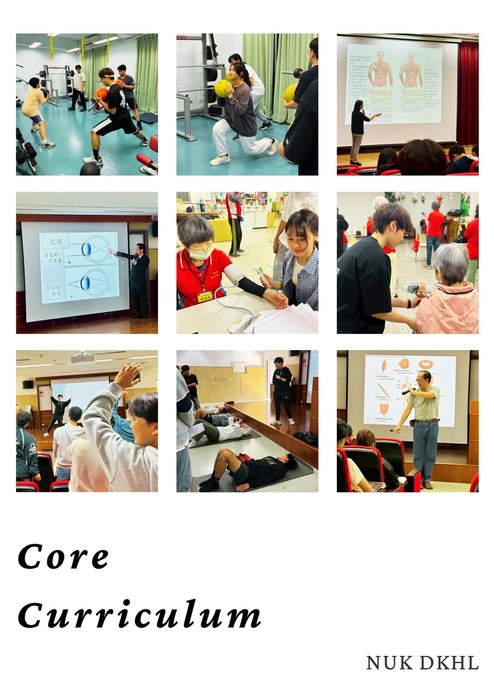

Undergraduate Curriculum
In addition, students complete university-required general education courses and graduation requirements.
Learning Approach
We cultivate students with strong theoretical foundations and encourage innovative, evidence-informed thinking. Beyond lectures, our courses emphasize active learning through case studies, hands-on practice, fieldwork, and observational learning—enabling students to connect academic knowledge with real-world health-promotion and leisure-service needs.
Core Curriculum
Across the first to fourth years, students build competencies in kinesiology-related knowledge, health promotion, and leisure studies through core courses such as anatomy and physiology, health psychology, health behavior, environmental health, physical fitness, healthy diet, statistics, first aid, and applied health-promotion coursework (e.g., Health Promotion: Theory and Practice, Community Health Promotion, Health Examination and Evaluation, and Research Methodology). These foundations prepare students to integrate physical, psychological, and social perspectives in professional practice.
Cluster Electives
Students complete 46 credits of cluster electives, with structured depth and breadth (Primary: 34 credits; Secondary: 12 credits) across two clusters:
Internship and Field-Based Training
Experiential learning is an essential part of the program. Students complete a required Industry Practicum (3 credits) and are encouraged to apply learning through service and field opportunities (e.g., event support, safety and first-aid assistance with appropriate training, and health-related fitness assessment services), strengthening workplace readiness and professional integration.
Graduation Requirements
In addition to credit requirements, students complete university graduation requirements such as English proficiency and information literacy. The program also includes a professionally oriented applied law requirement, fulfilled through Leisure Policy and Regulations (2 credits) in the junior year.
